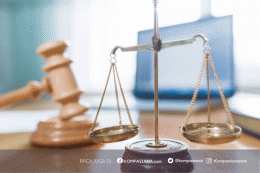Castro, R. Q., & AuYongOliveira, M. (2021). Blockchain and Higher Education Diplomas [Review of Blockchain and Higher Education Diplomas]. European Journal of Investigation in Health Psychology and Education, 11(1), 154. Multidisciplinary Digital Publishing Institute. https://doi.org/10.3390/ejihpe11010013
Chaniago, N., Sukarno, P., & Wardana, A. A. (2021). Electronic document authenticity verification of diploma and transcript using smart contract on Ethereum blockchain. Register Jurnal Ilmiah Teknologi Sistem Informasi, 7(2), 149. https://doi.org/10.26594/register.v7i2.1959
Dhakal, R. K. (2018). Responsible Practice of Research: Safeguarding Research Integrity and Publication Ethics. Journal of Education and Research, 6(2), 1. https://doi.org/10.3126/jer.v6i2.22144
DuBois, J. M., Anderson, E. E., Chibnall, J. T., Carroll, K., Gibb, T., Ogbuka, C., & Rubbelke, T. S. (2013). Understanding Research Misconduct: A Comparative Analysis of 120 Cases of Professional Wrongdoing [Review of Understanding Research Misconduct: A Comparative Analysis of 120 Cases of Professional Wrongdoing]. Accountability in Research, 20, 320. Taylor & Francis. https://doi.org/10.1080/08989621.2013.822248
Edwards, M., & Roy, S. (2016). Academic Research in the 21st Century: Maintaining Scientific Integrity in a Climate of Perverse Incentives and Hypercompetition. Environmental Engineering Science, 34(1), 51. https://doi.org/10.1089/ees.2016.0223
Fanelli, D. (2009). How Many Scientists Fabricate and Falsify Research? A Systematic Review and Meta-Analysis of Survey Data [Review of How Many Scientists Fabricate and Falsify Research? A Systematic Review and Meta-Analysis of Survey Data]. PLoS ONE, 4(5). Public Library of Science. https://doi.org/10.1371/journal.pone.0005738
Garwe, E. C. (2015). Qualification, Award and Recognition Fraud in Higher Education in Zimbabwe. Journal of Studies in Education, 5(2), 119. https://doi.org/10.5296/jse.v5i2.7456
Gopalakrishna, G., Riet, G. ter, Vink, G., Stoop, I., Wicherts, J. M., & Bouter, L. M. (2022). Prevalence of questionable research practices, research misconduct and their potential explanatory factors: A survey among academic researchers in The Netherlands. PLoS ONE, 17(2). https://doi.org/10.1371/journal.pone.0263023
Gross, C. G. (2015). Scientific Misconduct [Review of Scientific Misconduct]. Annual Review of Psychology, 67(1), 693. Annual Reviews. https://doi.org/10.1146/annurev-psych-122414-033437
Ling, M. H. (2018). Science/Education Portraits III: Perceived Prevalence of Data Fabrication and/or Falsification in Research. Advances in Biotechnology & Microbiology, 11(5). https://doi.org/10.19080/aibm.2018.11.555824
Lose, G., & Klarskov, N. (2017). Why published research is untrustworthy. In International Urogynecology Journal (Vol. 28, Issue 9, p. 1271). Springer Science+Business Media. https://doi.org/10.1007/s00192-017-3389-1







